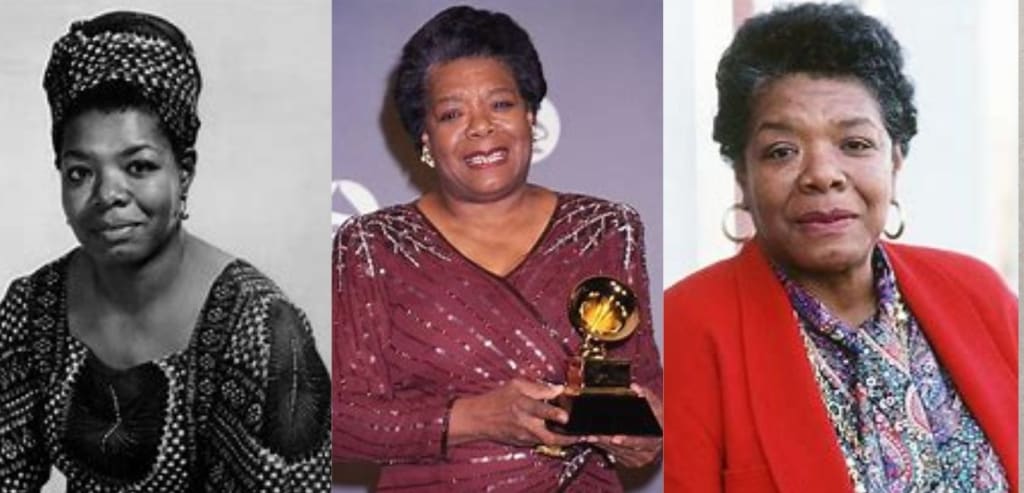Maya Angelou: The True Phenomenal Woman
Maya Angelou is an African American author, actress, screenwriter, dancer, poet, and civil right activists.

We’ve always heard of great Black people like Nelson Mandela, Martin Luther King, Jr., and many others who had a great impact on the world.
Maya Angelou is one such personality that very few know about.
She is one such character that overcame numerous difficulties and still showed the world how great she was.
Well, haven’t heard of her yet?
Read the whole post I’m going to tell you about her heartbreaking story.
Let’s get started.
Maya Angelou is an African American author, actress, screenwriter, dancer, poet, and civil right activists. She was born on April 4, 1928, in St. Louis, Missouri. Struggle is something that was with her since childhood as her parents divorced when she was very young, and she and her brother, Bailey were sent to live with her paternal grandparents in Stamps, Arkansas.
Since she was an African American, she faced racial prejudices and discrimination in Arkansas. Well, things went worse when she went to visit her mother at the age of 7. She was raped by her mother’s boyfriend.
When she revealed the truth, her Uncle kicked the guy to death. This made a huge impact on Maya Angelou’s life, she started to blame herself for the death of the rapist.
As a result, she decided not to speak to anyone for the next 5 years and immersing herself in books and imbibing the power of language as it is written, spoken, and sung.
By the time she graduated from the eighth grade, in 1940, she had begun to speak again and had become known throughout the black community as a precocious and eloquent child.
She later attributed to her self-imposed muteness her extraordinary ability to listen intently, remembering every inflection and every nuance of the words she heard.
Angelou and her brother moved to San Francisco in 1940 to be with their mother, who had remarried and was running a boarding house. While she was attending George Washington High School in San Francisco, Angelou obtained a two-year scholarship to study dance and drama at the California Labor School.
In addition to going to school day and night, she earned her own spending money. At the age of sixteen, she became the first black and the first female streetcar conductor in San Francisco.
She graduated from high school in August 1945, just a few months before giving birth to her son, Clyde ('Guy') Johnson. Over the next five years, she held a succession of jobs, including that of a cook in a Creole restaurant in San Francisco and a nightclub waitress in San Diego.
During the time she lived in San Diego, she also worked as a madam, managing two prostitutes, until her guilty conscience compelled her to quit and move back to Stamps.
Unable to tolerate the overt racism there, she soon returned to San Francisco. Hoping to obtain vocational training, she tried to enlist in the United States Army, but she was turned down after a security check of her background revealed that the California Labor School was listed as a subversive breeding ground by the House Un-American Activities Committee.
Angelou joined the Harlem Writers Guild in the late 1950s and met James Baldwin and other important writers.
It was during this time that Angelou had the opportunity to hear Dr. Martin Luther King speak. Inspired by his message, she decided to become a part of the struggle for civil rights.
She was offered a position as the northern coordinator for Dr. King’s SCLC. Following her work for Dr. King, Angelou moved to Cairo with her son, and, in 1962, to Ghana in West Africa.
She worked as a freelance writer and was a feature editor at the African Review. When Angelou returned to the United States in the mid-1960s, she was encouraged by author James Baldwin and Robert Loomis, an editor at Random House, to write an autobiography.
Initially, Angelou declined the offers, but eventually changed her mind and wrote I Know Why the Caged Bird Sings. The book chronicles Angelou’s childhood and ends with the birth of her son. It won immediate success and was nominated for a National Book Award.
She was the first Black woman to have a screenplay (Georgia, Georgia) produced in 1972. She was honored with a nomination for an Emmy award for her performance in Roots in 1977.
One source of Angelou’s fame in the early 1990s was President Bill Clinton’s invitation to write and read an inaugural poem.
Angelou’s poetry often benefited from her performance of it, and during her lifetime Angelou recited her poems before spellbound crowds.
Indeed, Angelou’s poetry can also be traced to African-American oral traditions like slave and work songs, especially in her use of personal narrative and emphasis on individual responses to hardship, oppression, and loss.
In addition to examining individual experience, Angelou’s poems often respond to matters like race and sex on a larger social and psychological scale.
In 2013 she was the recipient of the Literarian Award, an honorary National Book Award for contributions to the literary community. She died in 2014 at the age of 86.





Comments
There are no comments for this story
Be the first to respond and start the conversation.